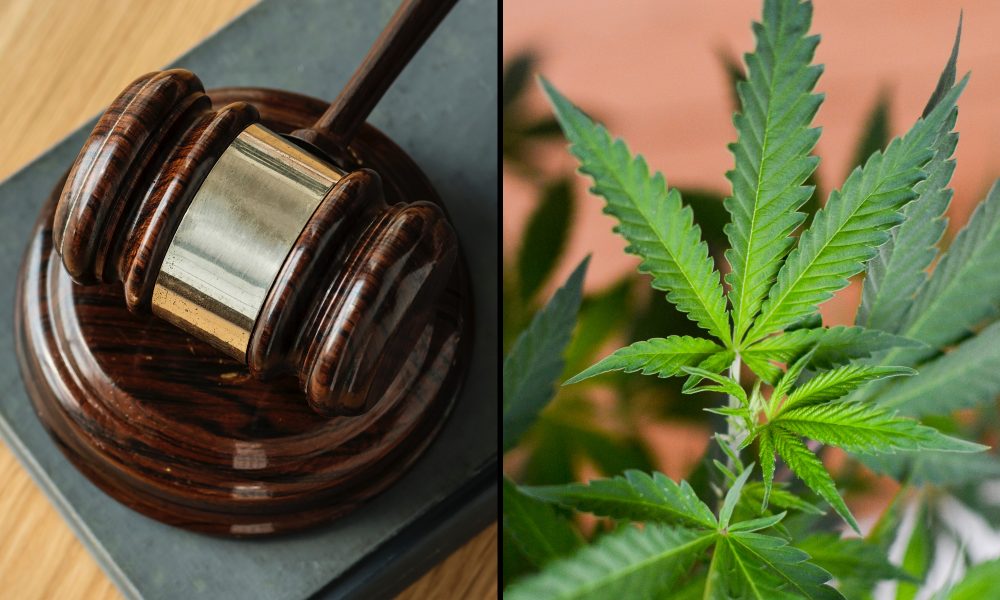As lawmakers in Virginia wait to see how Gov. Glenn Youngkin (R) will greet a retail marijuana sales bill sent to him last week, the legislature has passed separate legislation to provide relief for people convicted of past cannabis crimes, mandating that individuals with certain offenses automatically receive resentencing hearings and have their punishments adjusted.
The House of Delegates gave final approval to the bill, SB 696, on a 52–43 vote on Monday. The Senate passed the measure 20–19 last month.
Should the legislation become law, many criminal cases would need to be resentenced by the end of the year. People whose sentences for other crimes were enhanced because of a prior marijuana conviction, meanwhile, would receive hearings by April 1, 2025.
While most cases would be automatic, some people with convictions would need to petition a court for relief.
“It directs courts to consider that marijuana has been legalized—or to some degree legalized—and shall reduce, vacate or otherwise modify the person’s sentence,” sponsor Sen. Angelia Williams Graves (D) told a Senate panel earlier this session, “including removing such person from community supervision unless the commonwealth demonstrates it would not be compatible with the public interest to do so.”
An earlier version of the proposal would have included violent felonies in the types of cases eligible for resentencing relief, but that provision was removed in committee.
A variety of civil rights and justice groups support the measure, including Virginia NAACP, NORML, Marijuana Justice, Rise for Youth, the Last Prisoner Project and Nolef Turns.
Sheba Williams, the founder and executive director of Nolef Turns as well as a board member for Virginia NORML, said the bill would provide relief to more than 400 people who are currently incarcerated—people Williams said have been largely forgotten in discussions around marijuana legalization.
“These are not the reforms that people are paying much attention to,” she told Marijuana Moment. “The conversation has largely been around creating the retail adult-use market, and many people have neglected to think about the people who have been impacted by the failed war on drugs—which was the premise for actually doing the legalization bill back in 2021.”
As the state moves forward with cannabis reform—lawmakers last week sent a separate bill to the governor that would legalize retail marijuana sales—Williams said it’s important that leaders not forget the people affected by past policies.
“As the state stands to make billions of dollars off a plant that probably should never have never been criminalized, we have to start looking at the people,” she said. “A lot of us have worked a long time to address this.”
—
Marijuana Moment is tracking more than 1,000 cannabis, psychedelics and drug policy bills in state legislatures and Congress this year. Patreon supporters pledging at least $25/month get access to our interactive maps, charts and hearing calendar so they don’t miss any developments.
Learn more about our marijuana bill tracker and become a supporter on Patreon to get access.
—
Chelsea Higgs Wise, executive director of the group Marijuana Justice, said organizers are grateful to Williams Graves for taking up the proposal and moving it forward.
“As excited that we are that resentencing has made it this far,” she told Marijuana Moment, “we are now at the place that we warned many legislators about: what happens if we pass a regulated market but not the repair?”
“This approach of separating repair and revenue is frustrating to stakeholders,” she continued, “because people should be served justice before the state or businesses can collect benefits. We encourage the new majority to stand on their promise to lift those that are the most impacted and still caged for cannabis.”
If the bill is vetoed, Wise added, “we hope there is noise made from legislators and next session resentencing will be taken up as a priority.”
Like most marijuana reform issues this session, SB 696 passed largely along party lines, with only one Republican lawmaker, Del. Carrie Coyner, voting in favor of the bill.
It’s not yet clear how the GOP governorwill receive the bill. Williams said she’s hopeful he signs it into law, but she also acknowledged he’s been largely silent on the issue.
“The governor’s office has been really tight-lipped about their willingness to do anything,” she said. “Even though he’s kind of publicly said that he has no interest in the cannabis conversation, we’re hoping that they do the right thing when it comes to the people behind this bill.”
A separate Democrat-led proposal, meanwhile, would legalize a commercial cannabis market in the commonwealth. After negotiating a deal on the provisions of that bill, lawmakers sent it to Youngkin last week.
But in comments to Marijuana Moment, the governor’s office signaled that Youngkin’s hesitancy on cannabis hasn’t changed.
“I would refer you back to the Governor’s comments during the gaggle after the State of the Commonwealth,” Christian Martinez, the governor’s press secretary, said last week in an email, “where he said he doesn’t have a lot of interest in pressing forward with marijuana legalization.”
GOP Senators Push For Federal And State Response To Indian Tribe’s 4/20 Marijuana Sales Plan In North Carolina
Photo elements courtesy of rawpixel and Philip Steffan.
Read the full article here









